Google Pixelbook vs Samsung Chromebook Pro: two great Chromebooks compared
Clash of the Chrome OS titans – Google vs Samsung

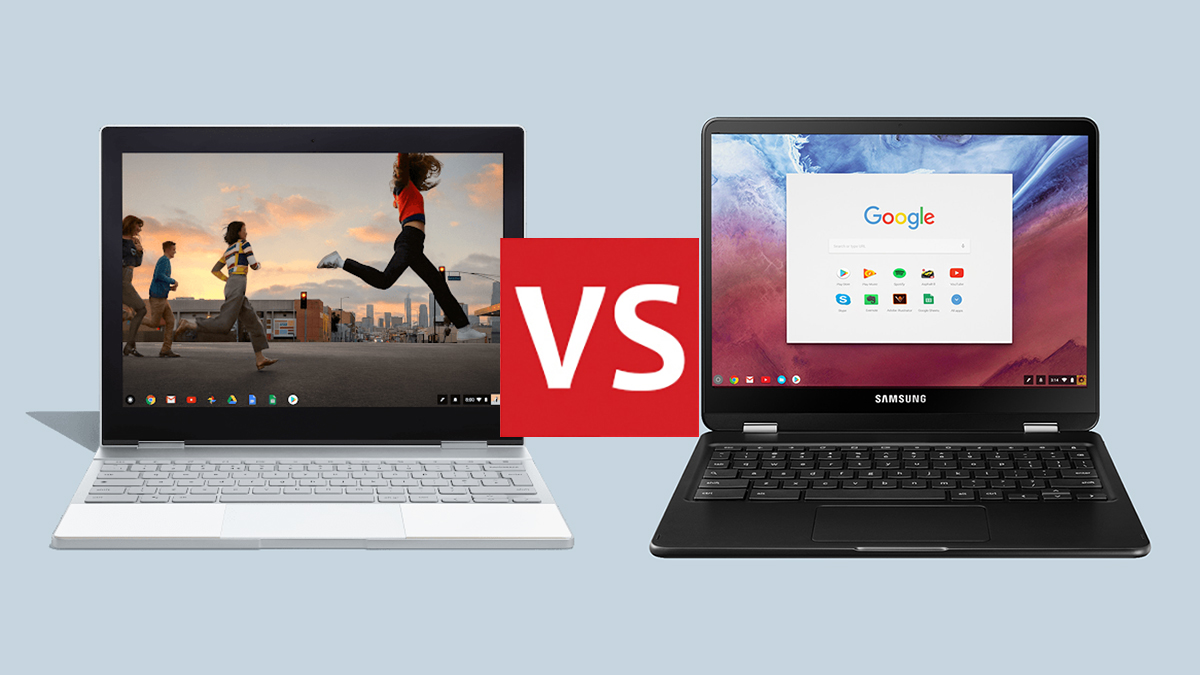
Get all the latest news, reviews, deals and buying guides on gorgeous tech, home and active products from the T3 experts
You are now subscribed
Your newsletter sign-up was successful
If you're after a lightweight Chromebook for your next computer you're spoilt for choice: plenty of manufacturers now have laptops running Chrome OS in their line-ups, which means you can take your time in working out which is the best model for your needs.
Here we're going to put two of the best Chromebooks on the market head to head, namely the Google Pixelbook and the Samsung Chromebook Pro. Both are lightweight and well-designed machines, with plenty of power, so which one is going to suit you the best?
Google Pixelbook vs Samsung Chromebook Pro: design
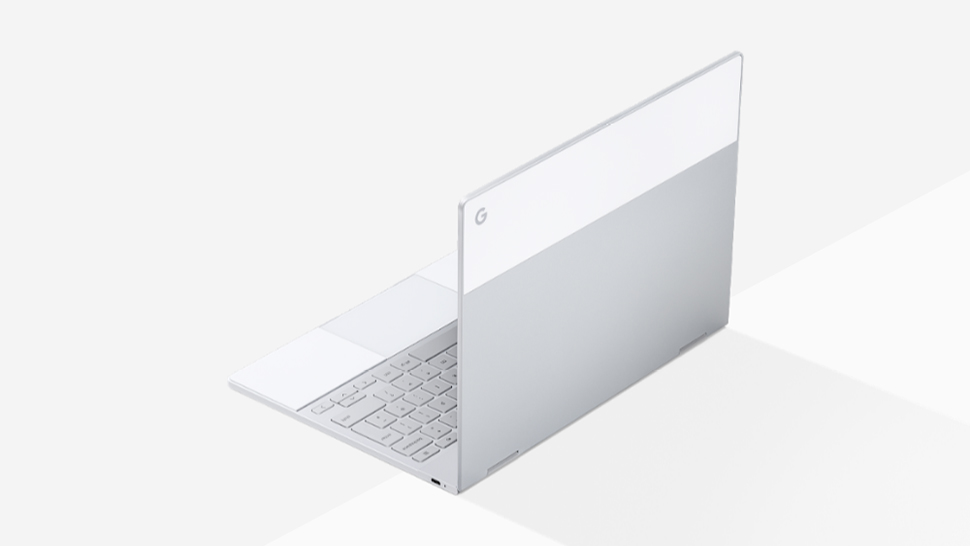
Google Pixelbook
It's difficult to pick out anything that's wrong in terms of the design of these two excellent-looking laptops: they're both going to have casual onlookers feeling envious that you've got such a well-sculpted computer to your name. They both take advantage of the low demands of Chrome OS to keep size and weight down to a minimum.
Your mileage may vary, but in our eyes the Google Pixelbook just edges it in the looks department, with a 12.3-inch, 2400 x 1600 pixel resolution screen, some nice grey and white finishing, and a soft keyboard (complete with rubberised wrist pads that's a pleasure to type on. The display bezels could be slimmer, for sure, but overall it's an appealing bit of kit and one of the best-looking pieces of hardware Google has ever made.
In the other corner the Samsung Chromebook Pro is almost as stunning in the design department – and again it has a 12.3-inch screen with a 2400 x 1600 pixel resolution. It's a little more rounded than the Pixelbook in terms of the edges and finish, but looks a little cheaper too, and that's why we're got a slight preference for the Pixelbook. There really isn't that much in it in terms of looks though.
Google Pixelbook vs Samsung Chromebook Pro: specs
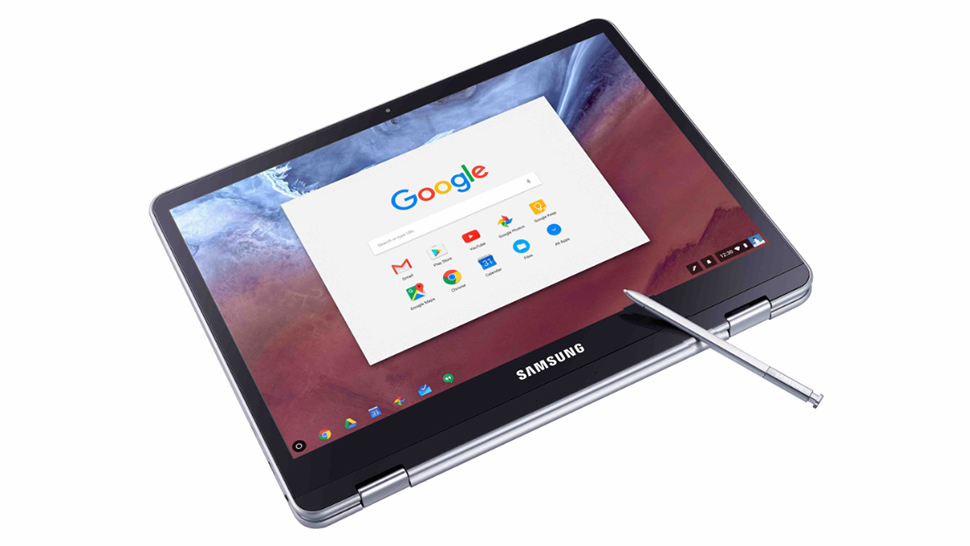
Samsung Chromebook Pro
Under the hood, Google has really gone to town with the specs for the PIxelbook: the 7th-generation Intel i5 or Intel i7 processors you can get fitted are really overkill for Chrome OS, but you definitely won't be seeing any slowdown no matter how many browser tabs you have open. The CPU is paired with 8GB or 16GB of RAM, and 128GB, 256GB or 512GB of SSD storage, depending on how much you want to spend and how many files you think you'll be saving locally.
As for the Samsung Chromebook Pro, it's powered by a less speedy Intel Core m3 processor, but will still handle Chrome OS perfectly well. It comes with 4GB of RAM and 32GB of internal storage – not that you need much on a Chromebook, as so much of your computing is handled in the cloud. The Pixelbook definitely wins in terms of raw specs, but the question is, how much processing power do you need for Chrome OS?
Get all the latest news, reviews, deals and buying guides on gorgeous tech, home and active products from the T3 experts
In truth: not much. By all means go for the Pixelbook if the specs have you drooling, but the Chromebook Pro from Samsung is pretty well-specced for a Chromebook as well, and will cost you a lot less money. The picture is slightly complicated by the fact that both these Chromebooks run Android apps – if you think you'll be needing them, you might want to go for a bit more local storage.
Google Pixelbook vs Samsung Chromebook Pro: features
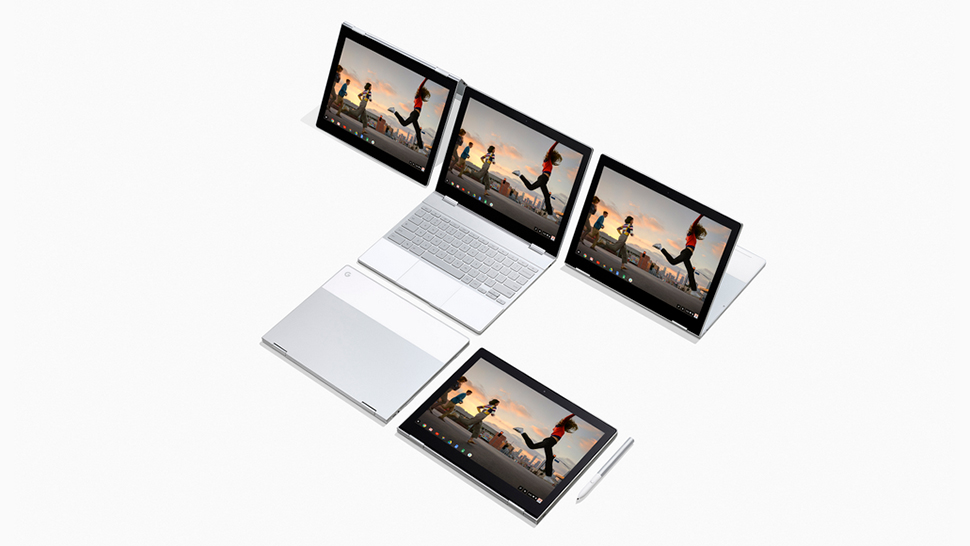
Google Pixelbook
We've just mentioned one of the key features shared by these two Chromebooks: they can both run Android apps from the Google Play Store, very happily. Of course you can run the likes of Netflix and Spotify in a browser window too, but remember the Android app versions let you cache content for offline watching or listening. It also means you've got access to a lot more in the way of quality games.
Another feature they both share is stylus support – though the Chromebook Pro comes with an S Pen included, and has a slot where it fits in. The Pixelbook has the Pixelbook Pen, but it's a £99/$99 extra, and there's not an obvious place to put it.
There are plenty of other similarities here too. A 360-degree rotating screen that folds right back like a tablet, HDMI-out capabilities via a USB-C port, and a 3.5mm audio port if you want to listen to some tunes via a traditional set of headphones. As for the differences, Samsung's laptop has an integrated memory card reader that might come in handy, whereas Google's laptop has the Google Assistant built right in – you can speak or type out your requests very easily.
Google Pixelbook vs Samsung Chromebook Pro: verdict
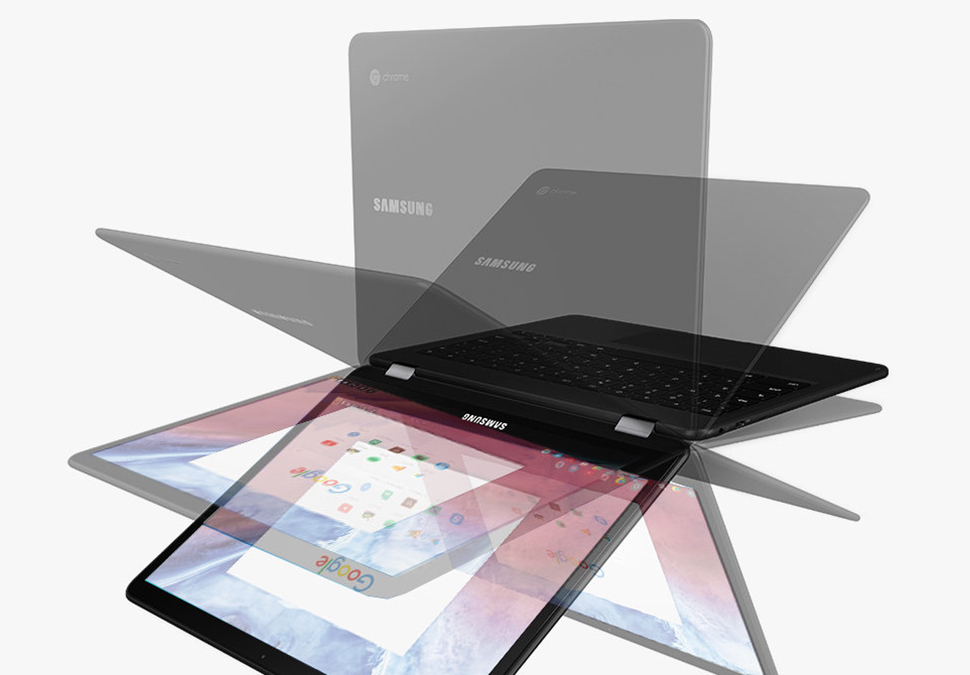
Samsung Chromebook Pro
As we said at the start, neither of these top-tier Chromebooks are going to disappoint, so you're basically left with a choice between the extra power and expense of the Google Pixelbook or the more modest and more affordable Samsung Chromebook Pro. Would you rather have the most powerful Chromebook out there, or have an extra several hundred pounds (or dollars) to spend on something else?
The integrated S Pen is certainly one reason to pick the Samsung device, if you think you're going to be doing a lot of digital doodling – the Pixelbook Pen feels like an expensive afterthought by comparison. On the other hand, if you want to go all-in with Google, the Pixelbook has Google Assistant and an instant tethering trick that works with Pixel phones.
Android apps are well covered by both laptops, though if you think you're going to be installing a lot of apps and saving a lot of content locally, the 32GB storage of the Chromebook Pro from Samsung starts to look a bit stingy. Both laptops are also starting to show their age, so if you're not absolutely desperate to buy a Chromebook right now, it might be worth waiting a few months to see if any new models appear.
Dave has over 20 years' experience in the tech journalism industry, covering hardware and software across mobile, computing, smart home, home entertainment, wearables, gaming and the web – you can find his writing online, in print, and even in the occasional scientific paper, across major tech titles like T3, TechRadar, Gizmodo and Wired. Outside of work, he enjoys long walks in the countryside, skiing down mountains, watching football matches (as long as his team is winning) and keeping up with the latest movies.
